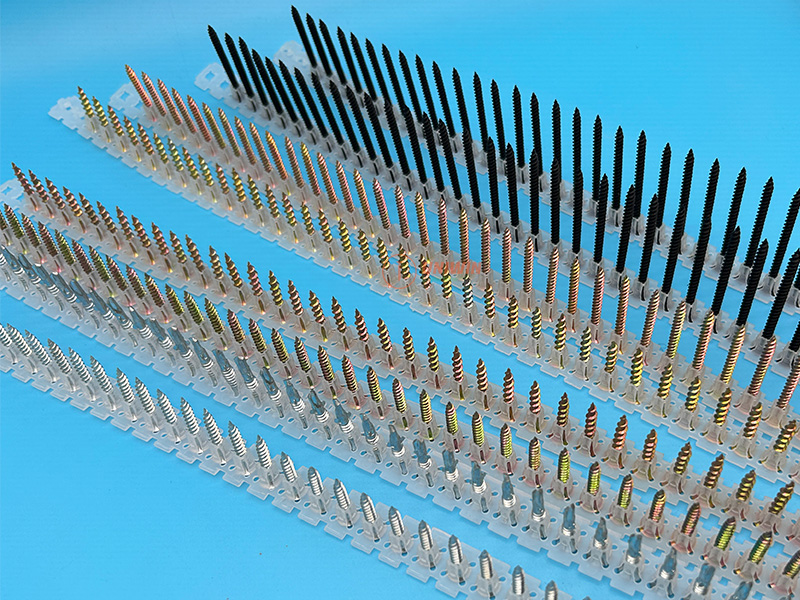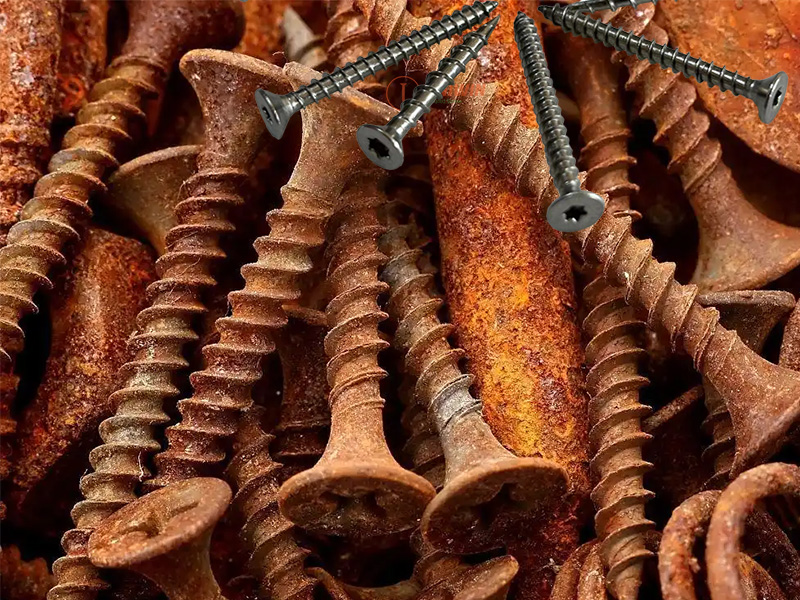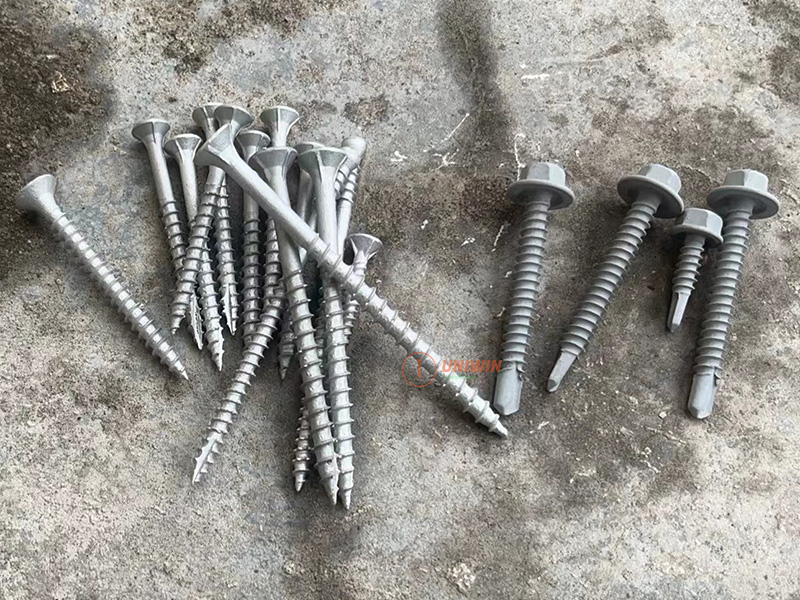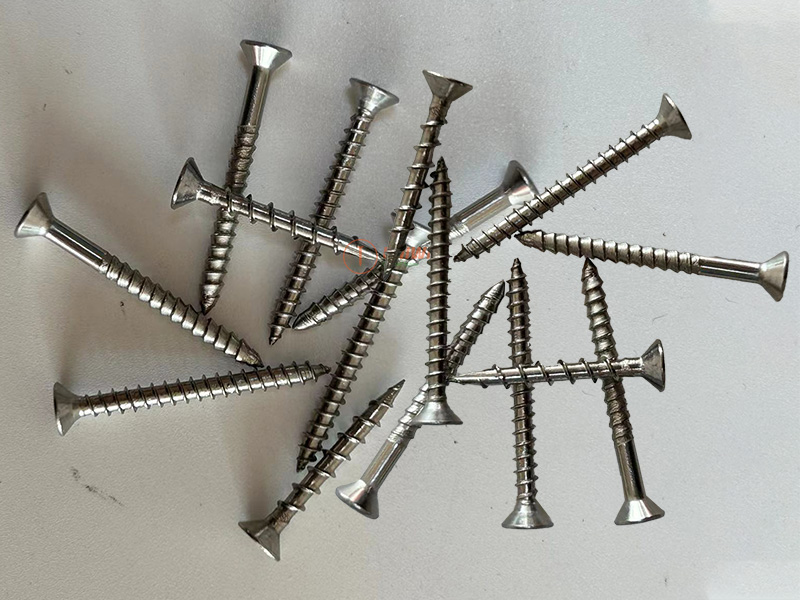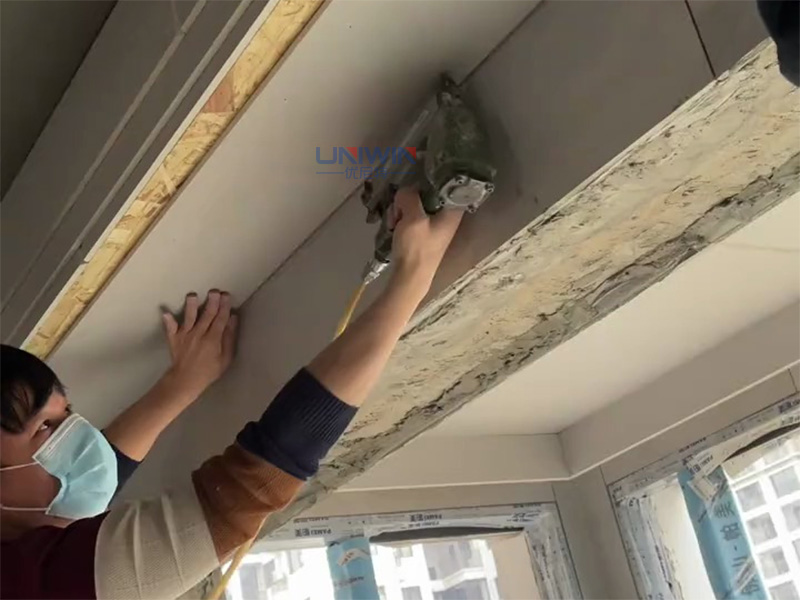Full Anti-Rust Screw Coating Guide
This article will show you why screws rust, and introduce several common anti-rust coating types and anti-corrosion materials to help you choose the right screws in different environments.
Why do Screws Rust? How to Choose the Right Anti-Rust Screw Coating?
Screws may be small, but once they rust, the consequences cannot be ignored. Whether in construction, manufacturing or house renovation, rusty screws may cause loose connections, structural failure, and even bring safety hazards and high repair costs.
Take drywall screws as an example. They are common fasteners in home decoration. Most are made of carbon steel, easy to rust in humid or complex environments if not anti-rust treatment, affecting their appearance and endangering stability.
Why do Screws Rust?
The main reasons for screw rust are as follows:
- Contact with Moisture and Oxygen: Screws will occur oxidation reactions to rust more quickly in humid environments.
- Poor Material Corrosion Resistance: Ordinary carbon steel screws are prone to corrosion and rust when not treated.
- Harsh Using Environment: High humidity or corrosive environments such as the seaside, kitchen, and chemical industry accelerate the corrosion process.
Common Anti-Rust Screw Coating Types
- Phosphating
Phosphating is a chemical reaction that forms a phosphate film on the metal surface, which can enhance the adhesion and lubricity of paint. It is usually used with oiling or spray painting to provide effective protection.
Rust Resistance: moderately low
Color: gray-black, blue-gray
Applicable Scenarios: industrial screws, pre-spraying treatment - Electro-Galvanizing
A thin zinc layer is applied to the screw surface by electroplating. It is suitable for dry indoor environments and is a low-cost and high-efficiency protection method.
Rust Resistance: medium
Color: silver white, yellow
Applicable Scenarios: furniture, home appliances, ordinary indoor connectors - Hot-Dip Galvanizing
The screw is immersed in molten zinc liquid to form a thicker and denser zinc layer with excellent corrosion resistance, suitable for outdoor or humid environments.
Rust Resistance: high
Appearance Color: gray white, matte silver
Applicable Scenarios: building structures, fences, steel components, seaside facilities, etc. - Black Oxide
The black oxide film is formed by chemical treatment, which has a good appearance and a certain lubrication effect, but the rust resistance is weak, and it is usually necessary to apply anti-rust oil for use.
Rust Resistance: low
Color: black, blue-black
Description: Suitable for non-humid environments with requirements for appearance, not recommended for outdoor use.
Applicable Scenarios: electronic equipment, indoor screws, tools and hardware, etc. - Epoxy / Polymer Coating
Spray a layer of epoxy resin or polymer on the screw surface to form a hard and dense protective layer, which can effectively isolate moisture, salt spray and chemical corrosive substances.
Rust Resistance: very high
Color: can be customized in gray, silver, etc.
Applicable Scenarios: coastal buildings, chemical plants, high-corrosion industries
Note: Excellent anti-corrosion performance, but the surface coating is easy to scratch, special attention should be paid during installation.
Common Anti-Rust Screw Materials
In addition to the surface coating, the material of the screw itself also directly affects its corrosion resistance. The following are two common anti-rust materials:
Stainless Steel
Natural anti-rust properties. Suitable for outdoor, seaside, food processing, medical and other environments with high anti-corrosion requirements, without additional surface treatment.
Copper and Copper Alloys
Have good corrosion resistance and electrical conductivity, commonly used in electronic and electrical fasteners. However, its mechanical strength is low and the price is relatively high.
How to Choose the Right Coating According to Application Scenarios?
Ordinary Indoor Use (furniture, electronics): choose electro-galvanizing or black oxidation treatment
Outdoor Structure, Humid Environment: choose hot-dip galvanizing or epoxy-coating screws
Seaside, Chemical Plant, High Corrosion Area: choose stainless steel or polymer coating
Pursuit of Durability and Maintenance-Free: stainless steel material is preferred


